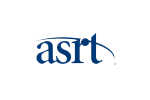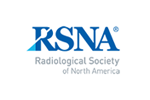Trauma Head Child
Head injuries in children can be dangerous and should be evaluated by a doctor. The Glasgow Coma Scale test helps determine if imaging tests are needed. In children with Glasgow scores greater than or equal to 13 with no symptoms of an injury, imaging is often not needed. If the test is less than 14, a CT scan without contrast is recommended. A CT scan helps identify bleeding, brain tissue damage, fluid in the brain, or skull fractures. The main risk to a child having a CT scan is exposure to radiation.
MRI does not use radiation and is better at finding areas of traumatic damage in the brain than a CT test. MRIs need the child to stay still for a long time, so the doctor may give the child calming medication. MRI is often used to follow up if the symptoms do not go away or if there are new symptoms.
A CT scan of the head is the preferred test when child abuse is suspected. An MRI can be done if the CT scan does not show anything. MRI is better than a CT scan at evaluating areas of brain injury that are more likely in child abuse. An MRI of the top of the spine should also be considered in these cases because there is often damage in this area as well.
For more information, see the Head Injury page.
This page was reviewed on October 15, 2023



